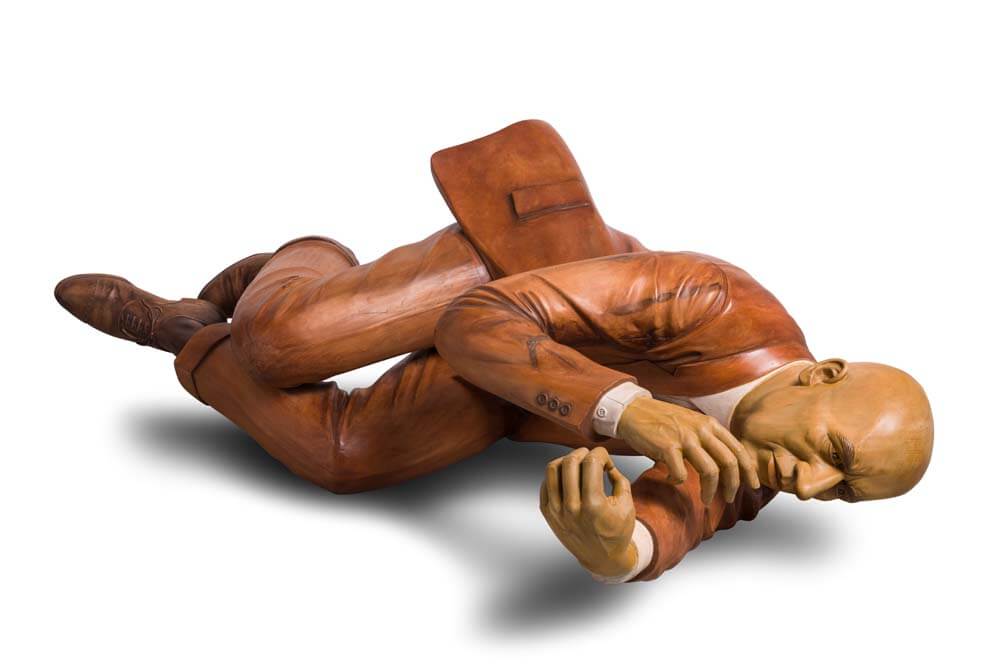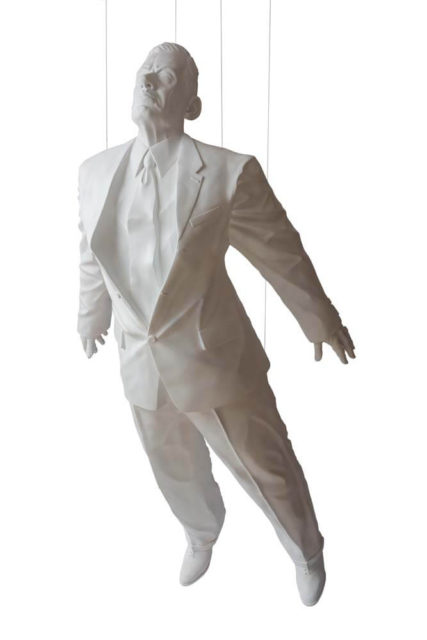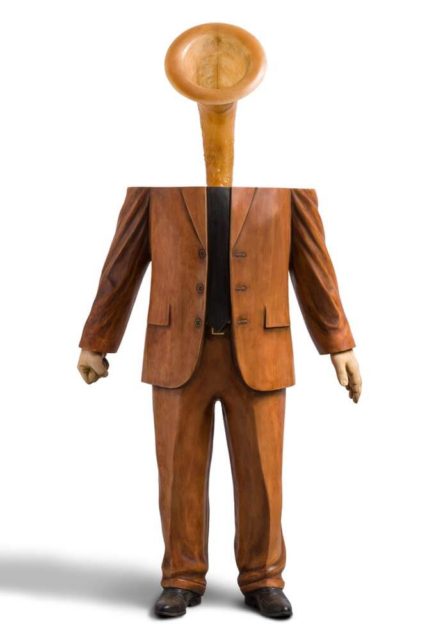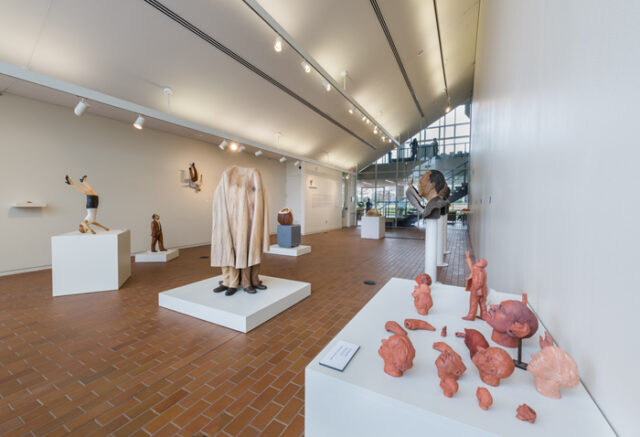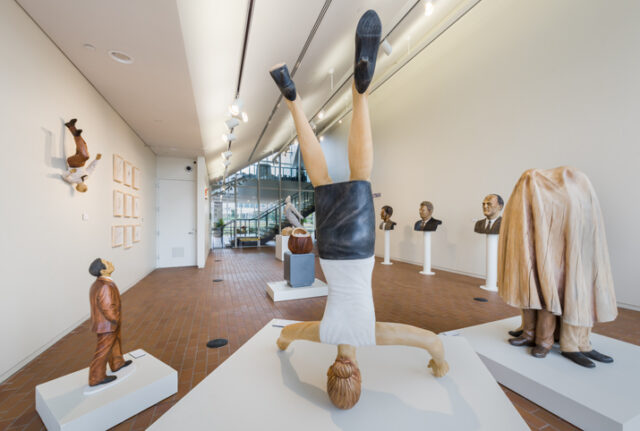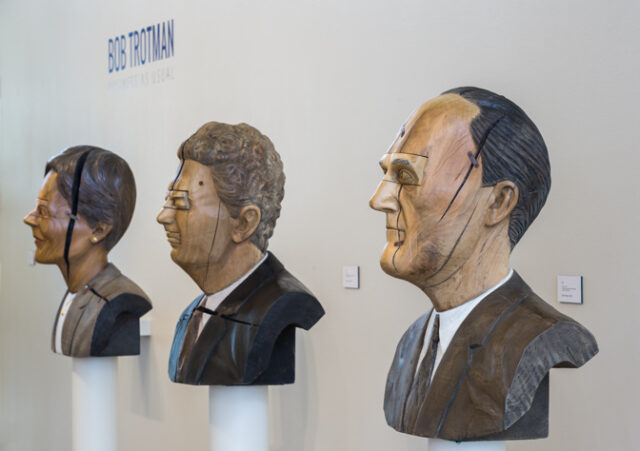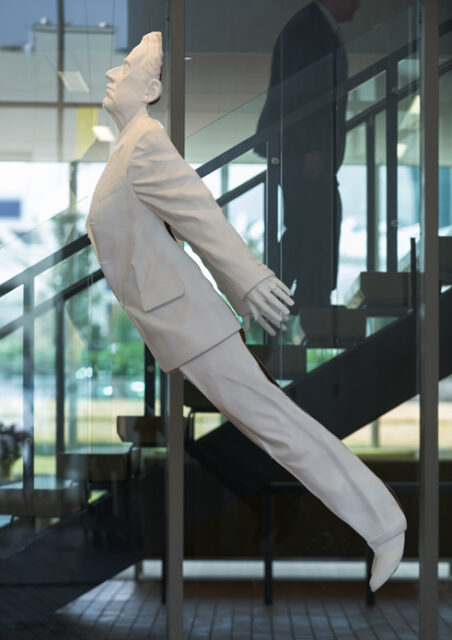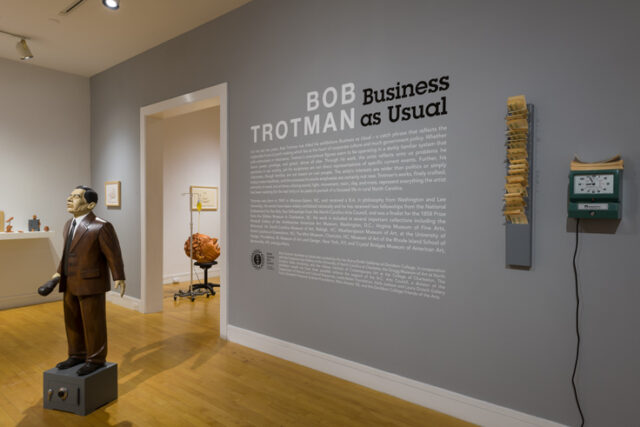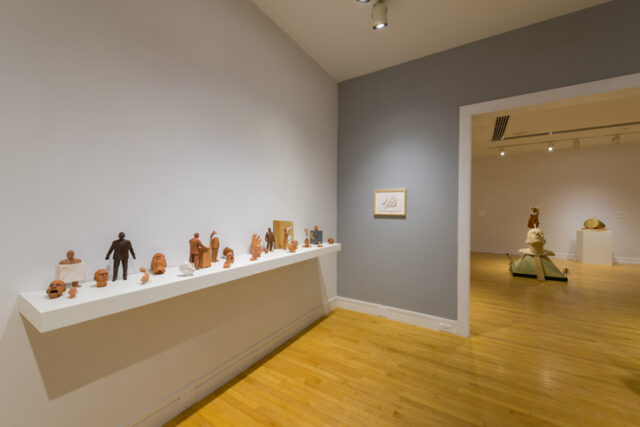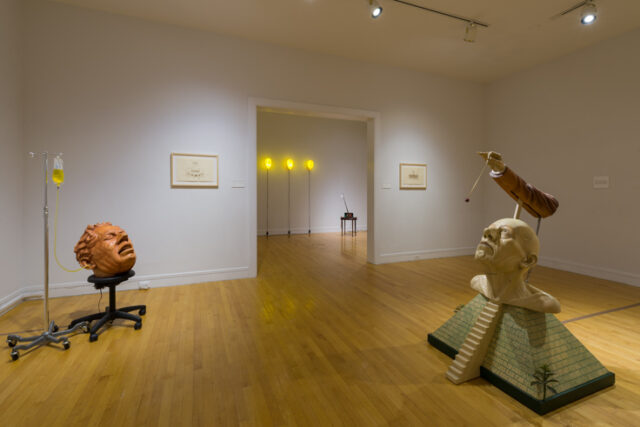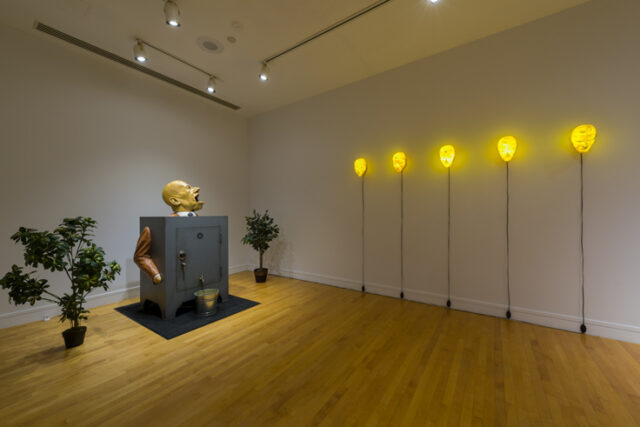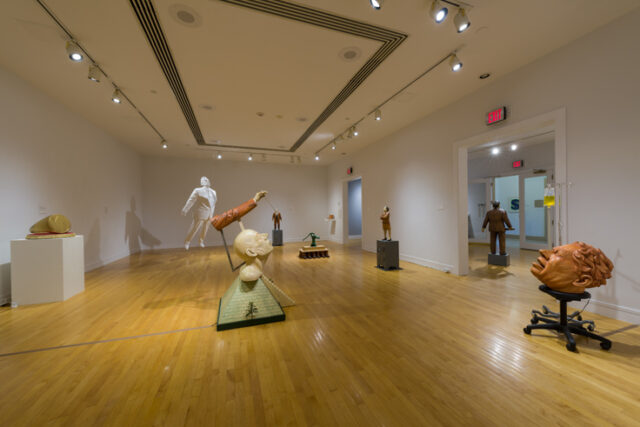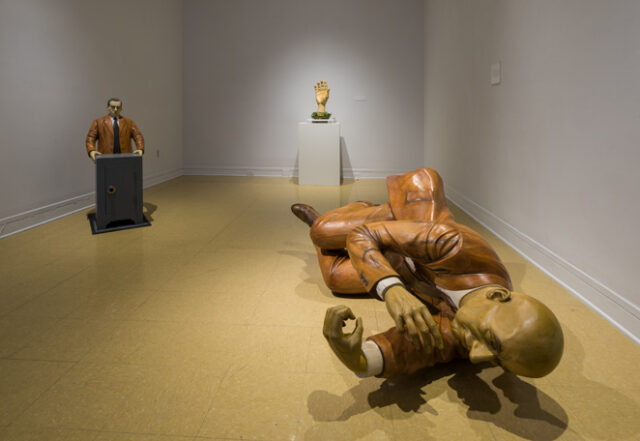Bob Trotman
Business as Usual
Van Every / Smith Galleries
On View: October 09, 2017— December 08, 2017
Opening Reception: October 19, 2017, 7:00 pm— 8:30 pm
Related Programs & Events
Artist Lecture
November 2, 2017, 7:00 pm—8:00 pm
Intro to Arduino Workshop for Artists: Explore Interactivity in Your Work
November 4, 2017, 10:00 am—5:00 pm
Also on Sunday, November 5, 1-4pm. Instructors: Thea Lanzisero and Doris Kapner (Skilstak Coding Arts) $135 (general)/$125 (Davidson students/faculty/staff). Includes all materials and lunch on Saturday. Limited space! Sign up by calling Lia Newman at 704-894-2519 This workshop is for artists who are curious about making their work interactive. Using the Arduino micro controller, students will learn basic set up and programming of various sensors to activate motion, light, and sound. Students will create a simple interactive sculpture using found objects. This course lays a foundation on which artists can build with this extraordinary device. The possibilities are limitless. No prior electronics experience is required; this course is appropriate for beginners. Thea Lanzisero is a New York based artist who creates environments and sculpture to weave her personal stories and mythology. She uses actions and processes from everyday life—like sewing, planting, weaving, welding—to create interactive work in the public realm. Thea has received multiple grants and public projects; exhibits throughout the US and Europe; and teaches at CUNY Brooklyn College in Brooklyn, New York. SkilStak™ Coding Arts is a learning lab located in Cornelius, North Carolina dedicated to helping others learn computer programming, engineering, entrepreneurship, and professionalism by having them solve technical challenges using real tools and practices facilitated by experienced professionals.
For the last ten years, Bob Trotman has titled his exhibitions Business as Usual – a catch phrase that reflects the implacable force of profit-making which lies at the heart of corporate culture and much government policy. Whether with enthusiasm or reluctance, Trotman’s anonymous figures seem to be operating in a darkly familiar system that favors power, privilege, and greed, above all else. Through his work, the artist reflects onto us problems he perceives in our society, yet his sculptures are not direct representations of specific current events. Further, his characters, though familiar, are not based on real people. The artist’s interests are wider than politics or simply today’s news headlines, and the excesses his works emphasize are certainly not new. Trotman’s works, finely crafted, primarily of wood, but at times utilizing sound, light, movement, resin, clay, and more, represent everything the artist has been resisting for the last forty or so years in pursuit of a focused life in rural North Carolina.
Trotman was born in 1947 in Winston-Salem, NC, and received a B.A. in philosophy from Washington and Lee University. His works have been widely exhibited nationally and he has received two fellowships from the National Endowment for the Arts, four fellowships from the North Carolina Arts Council, and was a finalist for the 1858 Prize from the Gibbes Museum in Charleston, SC. His work is included in several important collections including the Renwick Gallery of the Smithsonian American Art Museum, Washington, D.C.; Virginia Museum of Fine Arts, Richmond, VA; North Carolina Museum of Art, Raleigh, NC; Weatherspoon Museum of Art, at the University of North Carolina at Greensboro, NC; The Mint Museum, Charlotte, NC; Museum of Art of the Rhode Island School of Design, Providence, RI; Museum of Art and Design, New York, NY, and Crystal Bridges Museum of American Art, Bentonville, AR, among others. Check out our bookstore for a hard copy of the Bob Trotman: Business as Usual book.
Bob Trotman: Business as Usual was curated by the Van Every/Smith Galleries at Davidson College, in cooperation with the Projective Eye Gallery at the University of North Carolina at Charlotte, the Gregg Museum of Art at North Carolina State University, and the Halsey Institute of Contemporary Art at the College of Charleston. The exhibition would not have been possible without the support of the N.C. Arts Council, a division of the Department of Natural and Cultural Resources, Lewis-Butler Foundation, Herb Jackson and Laura Grosch Gallery Fund, Elizabeth Firestone Graham Foundation, Malu Alvarez ’02, and the Davidson College Friends of the Arts.

